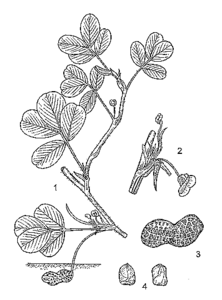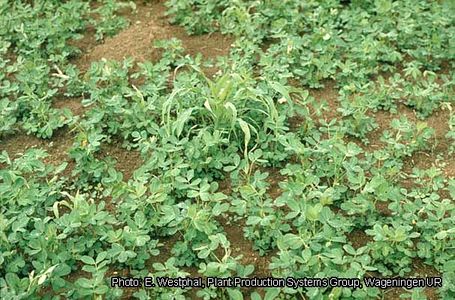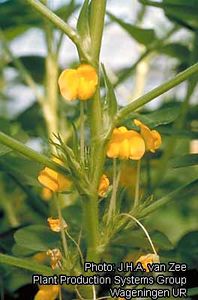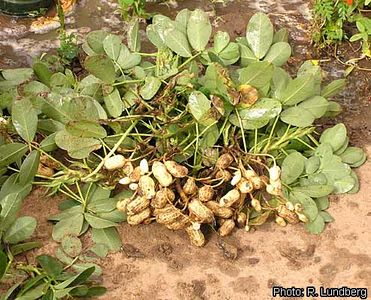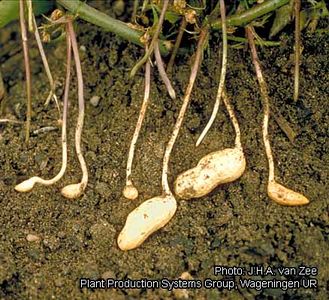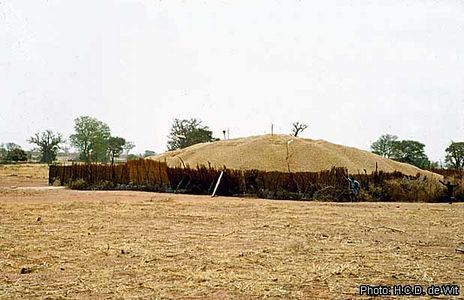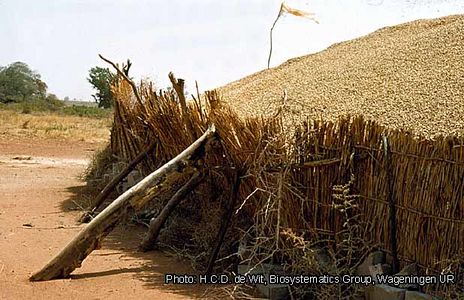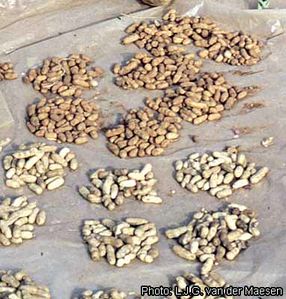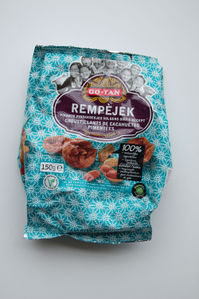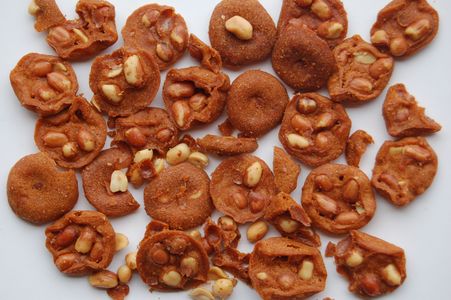Arachis hypogaea : Différence entre versions
De PlantUse Français
| Ligne 57 : | Ligne 57 : | ||
== Références == | == Références == | ||
| + | *Bertioli, David J. ''et al.'', 2019. The genome sequence of segmental allotetraploid peanut ''Arachis hypogaea''. ''Nature Genetics'', '''51'''(5) :877-884. [https://doi.org/10.1038/s41588-019-0405-z doi: 10.1038/s41588-019-0405-z]. | ||
*Seijo, Guillermo ''et al.'', 2007. Genomic relationships between the cultivated peanut (''Arachis hypogaea'', Leguminosae) and its close relatives revealed by double GISH. ''American Journal of Botany'', '''94'''(12): 1963–1971. [http://dx.doi.org/doi:10.3732/ajb.94.12.1963 doi:10.3732/ajb.94.12.1963] | *Seijo, Guillermo ''et al.'', 2007. Genomic relationships between the cultivated peanut (''Arachis hypogaea'', Leguminosae) and its close relatives revealed by double GISH. ''American Journal of Botany'', '''94'''(12): 1963–1971. [http://dx.doi.org/doi:10.3732/ajb.94.12.1963 doi:10.3732/ajb.94.12.1963] | ||
Version du 4 juillet 2019 à 20:25
Arachis hypogaea
| Ordre | Fabales |
|---|---|
| Famille | Fabaceae |
| Genre | Arachis |
2n = 4x = 40 (AABB)
Origine : Bolivie
cultivé
| Français | arachide |
|---|---|
| Anglais | peanut |
Cette page a été créée par un robot. Les premières tâches à faire sont de vérifier les liens, de clarifier la nomenclature et de choisir des photos dans Wikimedia Commons.
Sommaire
Description
Noms populaires
| français | arachide (plante); cacahuète, cacahouète (produit); pistache de terre |
| anglais | groundnut, peanut, earthnut, monkey nut |
| portugais | amendoim, mandobi, caranga |
| swahili | mnjugu nyasa / njugu nyasa ; karanga, kalanga |
Classification
Cultivars
Histoire
Usages
Références
- Bertioli, David J. et al., 2019. The genome sequence of segmental allotetraploid peanut Arachis hypogaea. Nature Genetics, 51(5) :877-884. doi: 10.1038/s41588-019-0405-z.
- Seijo, Guillermo et al., 2007. Genomic relationships between the cultivated peanut (Arachis hypogaea, Leguminosae) and its close relatives revealed by double GISH. American Journal of Botany, 94(12): 1963–1971. doi:10.3732/ajb.94.12.1963

